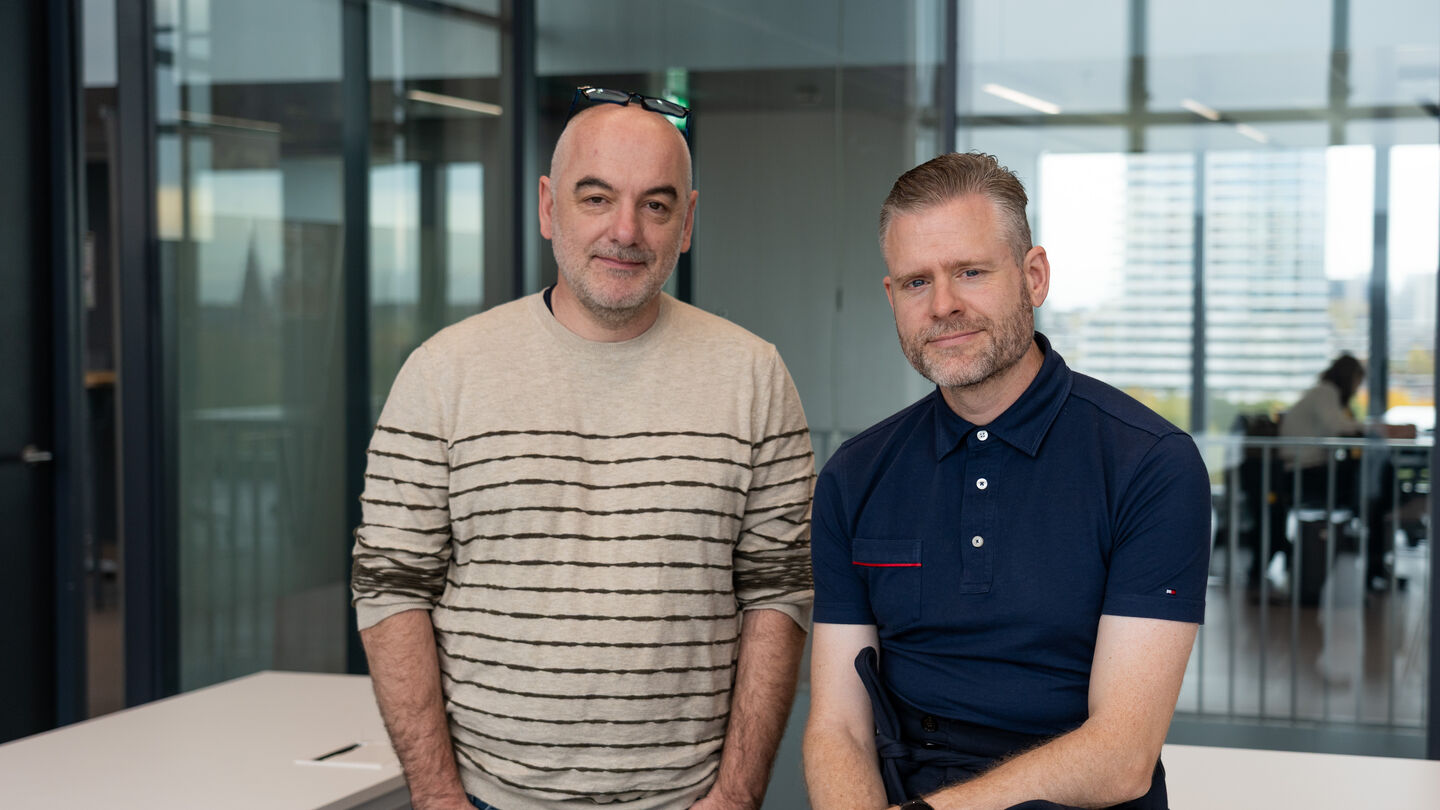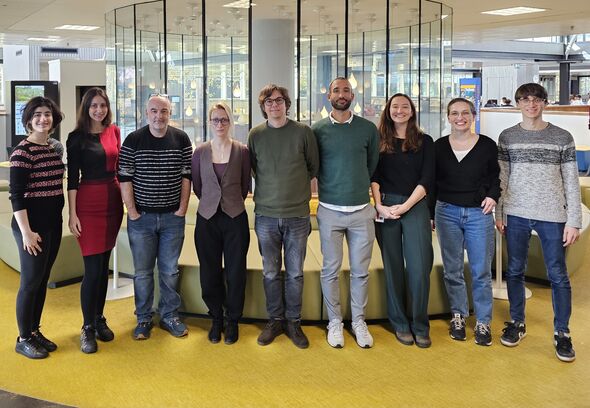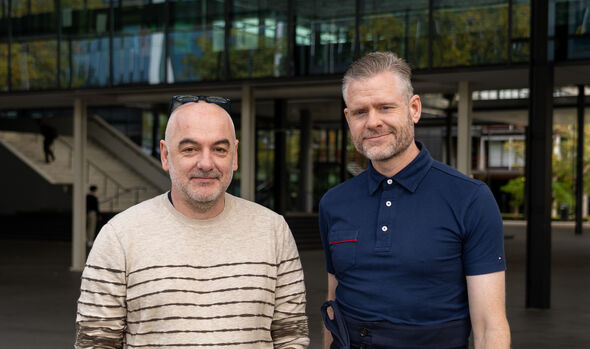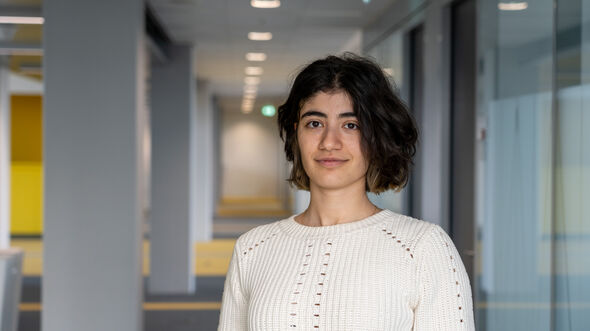
Knowledge centre META/e: home for those improving science
TU/e researchers launch platform for metascience
TU/e has gained a new research centre: META/e. Daniël Lakens and Krist Vaesen were among the founders of this knowledge hub for metascience—research aimed at improving the practice of science itself. “We want to be a home for every researcher who occasionally wonders: what are we even doing?”
Metascientists are often loners, say Krist Vaesen and Daniël Lakens, both associate professors at the department of IE&IS. “While their colleagues simply go about their work, these researchers ask themselves: what exactly are we doing?” Lakens explains.
Research on metascientific topics is usually conducted alongside their main research, without funding, driven purely by an intrinsic motivation to make science better. Vaesen: “We want to create a home for that group.” That’s also why the two are speaking with Cursor — to increase their visibility within the broader TU/e community.
Final push
META/e has existed since early 2025. “Besides Daniël and myself, our colleagues Sajedeh Rasti, Vlasta Sikimić, Wybo Houkes, Cristian Mesquida, and Andrea Kis were also involved in founding it. It was a team effort,” Vaesen emphasizes. The institute focuses on topics such as open science, team science (as opposed to competition), research reproducibility, and the application of AI.
“We established META/e on our own initiative, truly bottom-up,” says Vaesen. Lakens adds: “The final push came from an accreditation review that showed our department already had considerable expertise in metascience. The recommendation to IE&IS was to make more of that.”
What does META/e do?
Anyone interested in metascience can draw inspiration from like-minded peers during META/e gatherings. But the institute offers more. For example, it teaches a course for first-year master’s students on how to critically assess the quality of scientific papers.
For PhD candidates and postdocs—including those from outside TU/e—there is the Paul Meehl Graduate School. Meehl was an American pioneer in metascience. Participation in the graduate school is free, Lakens emphasizes. “Most people pursue this topic out of personal interest, alongside their main work, and they usually don’t have a training budget for it.”
Activism
“What distinguishes metascience from disciplines like philosophy of science is a certain idealism and activism,” Vaesen says. “We conduct research with the goal of ultimately improving science.” He should know—in addition to being an engineer, he’s also a philosopher of science. “That’s why we founded the institute ourselves: there’s a lot going wrong, so why wait to fix it?”
Lakens, who has a background in experimental psychology, agrees. “My starting point is: we humans do our best, but we don’t always get it right. So what can we improve, and how do we make that happen?” He received a Vici grant for his metascientific research and, as chair of the TU/e Ethical Review Board, he deals with scientific ethics on a structural level.
Obsession
Vaesen will soon publish a book titled Neomania: How Our Obsession with Innovation Is Failing Science, and How to Restore Trust. “Scientists are under enormous pressure from all sides to innovate for the sake of innovation,” he says. This obsession drives researchers to jump on every new trend—like AI—for fear of missing the boat. “But what science really needs is robust knowledge,” Vaesen argues. “And that takes time and persistence.”
There are more perverse incentives undermining science, such as competition. Many aspects of the academic system foster it: individual reward structures, the constant struggle for funding, and the pyramid-shaped career hierarchy in academia.
AI reviews
The overall quality of science suffers when researchers prioritize personal success. Lakens gives an example that also reflects the widespread sense of heavy workload: “Scientific journals are finding it increasingly difficult to recruit reviewers for submitted papers.”
“Reviewing is quintessentially something you do not for yourself, but to advance science,” he notes. “Meanwhile, some journals are already experimenting with AI reviews—which, of course, brings its own set of new challenges.”
So this is possible too
In contrast to the competition model, concepts like team science and open science focus on the power of collaboration and building on each other’s work. Sajedeh Rasti, one of META/e’s driving forces, is conducting PhD research on coordination in science—aligning promising research directions and deciding who tackles which tasks (read more in box below).
“Under the motto practice what you preach, we applied this at the earliest opportunity,” says Vaesen. In preparation for a research call, the META/e team reached out to about twenty fellow metascientists across the Netherlands. “We asked whether they might want to submit a joint proposal—rather than competing against each other.”
The idea eventually led to two collective proposals, with results expected in March 2026. “Whether or not the funding is granted, this already feels like a win,” says Lakens. “Participants responded with enthusiasm and inspiration, saying things like: wait, so this is possible too—we can actually just do this together. A seed has been planted.”
Magically
Everyone seems to agree that open science will improve research: governments, funding bodies, and universities alike. That sounds like good news—but according to Lakens and Vaesen, declaring open science a priority isn’t enough.
First, there’s no structure to verify whether researchers are actually following the guidelines. Vaesen: “The new national code for research integrity, all NWO grants, and university policies—they all require researchers to share their data properly. But none of them specify how compliance should be monitored.”
“They’re basically hoping it will just happen magically,” Lakens says with a grin. Then, more seriously: “Without insight into the current state of affairs, you can’t create effective policy. TU/e could take a more ambitious stance here. For instance, the university could use the research cockpit developed by LIS to help monitor this.”
Self-interest
A second role for the university’s Executive Board is motivating the community to actually adopt open science in practice—even when it’s inconvenient in the short term. “After all, the board represents the collective long-term interest,” Lakens says.
That doesn’t mean, he stresses, that the Executive Board should impose open science top-down. “But it is up to the board to set goals and bring researchers along in the process.”
Lakens and Vaesen do understand why researchers may hesitate to openly share their data. “Researchers have their own interests,” says Lakens. “It takes time, workloads are already high — and what if someone uses your data for the very thing you were planning to do yourself?”
These are the kinds of processes that are studied in metascientific research and that are part of the reason academia is not a utopia—at least not yet.
Sajedeh Rasti: “What science needs, is a systemic change”
Two years ago, Sajedeh Rasti came to TU/e to start her PhD research. Just a few months later, she was already involved in setting up the Paul Meehl Graduate School for metascience. “I had to submit a training plan, but it turned out that none of the existing TU/e courses matched my research topic. Taking all the necessary courses externally would have been very expensive.”
“My supervisor, Daniël Lakens, decided to turn that problem into an opportunity—by bringing the expertise to TU/e instead, and making it available to others through a graduate school.”
A year later, META/e was launched. “That all happened very quickly. Someone suggested the idea of founding an institute, I spontaneously offered to create the website, and that’s how it all began.”
Publish or perish
During her master’s in psychology at the University of Padua in Italy, Rasti was first introduced to metascience. She was so intrigued by the field that she wrote her master’s thesis on it. “I discovered that the problems in science aren’t just contemporary—they’re structural.”
Take the well-known phrase “publish or perish”, which refers to the publication pressure many researchers face and how it can affect the quality of their work. “The first academic paper in which that phrase appeared was published more than thirty years ago.”
Toothbrush
Rasti’s PhD research focuses on coordination in science. The idea sounds perfectly logical: researchers within a given field coordinate to determine which research lines deserve priority and then divide the work accordingly. Who develops the methods, who collects the data, and who analyzes it?
Yet in practice, things often look very different. “I can mainly speak for the social sciences, but it often works the other way around. Instead of aligning their efforts around the most promising research directions, researchers tend to look for their own unique niche.”
And as for data sharing? Many scientists still shy away from it. “I’ve heard people say that research methods and results are like a toothbrush—you only use your own.”
Joining forces
Rasti believes that science would advance much faster if researchers joined forces. But that requires systemic change. “The entire scientific system—funding structures, hiring practices, and journals—rewards individual achievement rather than collective contribution to a greater whole.”
The next step in her research is to model all the actors in the scientific ecosystem. “That way, I can explore what happens when we adjust the different parameters.”
Still, change shouldn’t come only from governments and university boards, she emphasizes. “The movement needs to happen both top-down and bottom-up: driven by researchers’ intrinsic motivation—not to climb the career ladder, but to do the best science together—and supported by a system that makes that possible.”
This article was translated using AI-assisted tools and reviewed by an editor




Discussion